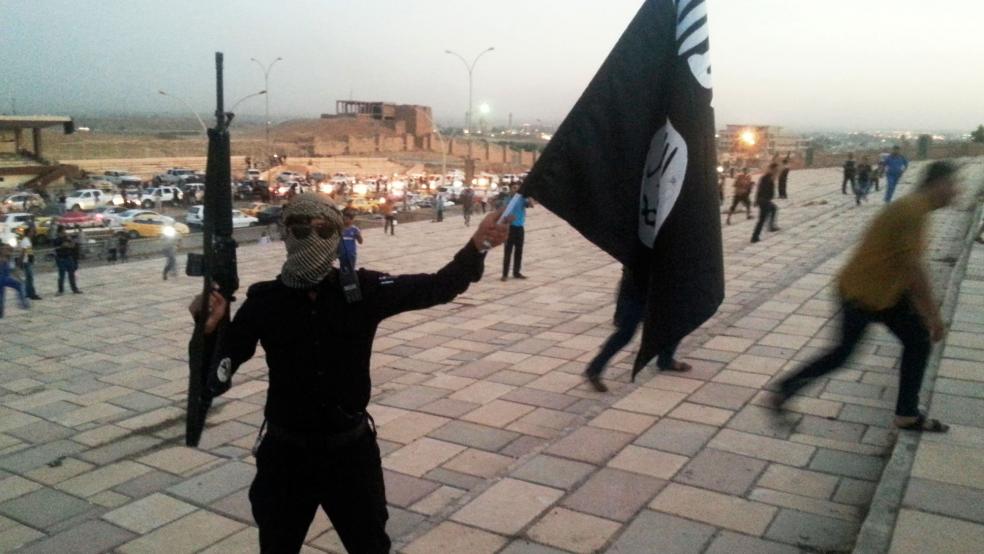Few doubt the horrific scale of atrocities committed by the Islamic State since it captured large areas of Syria and Iraq earlier this year. What may be more surprising is that even some of the group's own members may have experienced that brutality. According to a new report from the Syrian Observatory of Human Rights (SOHR), at least 120 members of the Islamic State have been "executed" since the group proclaimed its caliphate in June.
Executing your own troops may seem an unusual tactic, and the purported number killed is large even when compared with reports of other executions carried out by the Islamic State.
Related: ISIS Is Growing Its 'Terror Army' of Global Jihadists
In total, SOHR's report says it has documented at least 1878 executions by the Islamic State in the past six months: The vast majority of those killed were civilians, the group said, while 502 were soldiers of the Syrian regime and 81 were members of other rebel or Islamist groups.
The Britain-based SOHR is perhaps the group most frequently cited for facts and figures from the Syrian conflict, despite some questions about its methodology and accusations of underlying bias. Even so, the figure on executions of Islamic State fighters seem especially remarkable — what would lead the Islamic State to take aim at its own fighters? SOHR offers a simple explanation: The majority of Islamic State fighters executed had been caught after they attempted to return home.
If that's true, it's an important bit of information about a group that appears to have captured the imagination of many would-be jihadists all around the world.
Related: 9 ISIS Weapons That Will Shock You
Estimates suggest that thousands of foreigners have traveled to Syria to fight, and there appear to be many other sympathizers of the group still based in their home countries.
However, SOHR's report seems to be further evidence that although some foreign fighters are no doubt fearsome, others are quite clearly not. In fact, a few may be quite some way from fearsome: In November, the French newspaper Le Figaro carried an account of French Islamic State fighters complaining to their family back home about their broken iPods and the cold winter.
Even hardier fighters may have had second thoughts as the Islamic State, facing U.S. airstrikes, began to lose its momentum late in the year. Writing last month, Rita Katz, a terrorism analyst and co-founder of the SITE Intelligence Group, noted that many foreign fighters had begun to wonder how long they would be fighting and what might happen next.
Related: ISIS Beheads Another American As 60 New Terror Groups Join
As The Post's Liz Sly has reported, there are also broader problems such as the Islamic State's ability to provide even basic amenities in its self-proclaimed caliphate.
The Islamic State, which has built much of its reputation on the fierce loyalty of its fighters, would no doubt be aware of how damaging returning fighters could be, both in terms of publicity and because they could be of value to international intelligence agencies. According to a report from the Financial Times, the Islamic State recently formed a military police unit to crack down on fighters not reporting for duty. Executing fighters attempting to flee also would send a powerful message to other fighters having second thoughts.
For foreign governments, it is worth thinking about what sort of welcome fighters returning from the Islamic State should be afforded. Some countries, such as Denmark, have worked to integrate returning Islamist fighters back into society, but others, such as Britain and Canada, are pursuing a far harder line by cancelling passports and threatening jail time.
This article originally appeared in The Washington Post.
Read more at The Washington Post:
Berlin Secretly Feeding the U.S. Data on Germans
Clinton-Bush, or Warren-Cruz in 2016?
Rep. Michael Grimm Expected to Resign





